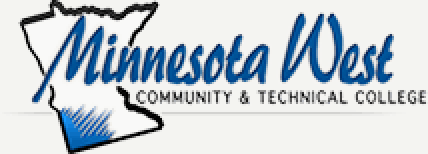SWRK 1101 Introduction to Human Services: Social Work
SWRK 1101: Introduction to Human Services: Social Work
Description
Introduction to Human Services: Social Work introduces students to the field of Social Work, from its historical background to current trends and issues affecting vulnerable populations. Emphasis is given to professional values and ethics. Offers students an opportunity to explore the wide range of roles and areas of specialization unique to the profession, including case management, direct services, counseling, child welfare, community-based mental health, health care, criminal justice, youth work, forensic social work and generalist social work.
Credits
3
Prerequisite
STSK 0095 or placement by multiple measures
Corequisite
None
Topics to be Covered
1. Social Work Profession
2. Knowledge, skills, values, and ethics involved in the practice of Social Work
3. Settings in which social workers practice and the diverse client groups whom social workers serve
4. Professional NASW Code of Ethics
Learning Outcomes
1. Discuss the historical evolution of the social work profession.
2. Identify major fields of practice in the social work profession.
3. Explain generalist social work as a profession.
4. Describe the roles and responsibilities of the social work profession within the social welfare system.
5. Differentiate among professional social worker’s responsibility and other service provider’s responsibilities.
6. Discuss social work’s perspective on human diversity, oppression, and privilege.
7. Discuss the values of the profession and recognize the National Association of Social Workers (NASW) Code of Ethics as the practice framework for generalist social work practice.
8. Demonstrate professional demeanor in behavior; appearance; and oral, written, and electronic communications.
9. Identify their comfort level to work with persons different from themselves.
10. Identify selected social problems, social welfare agencies’ responses to these issues, and the role that social workers play in these various settings.
11. Identify socioeconomic and related issues impacting populations at risk including issues of social justice and systems of oppression.
Credit Details
Lecture: 3
Lab: 0
OJT: 0
MnTC Goal Area(s): Goal Area 05 - History and the Social and Behavioral Sciences, Goal Area 7 - Human Diversity
Minnesota Transfer Curriculum Goal Area(s) and Competencies
Goal Area 05: History and the Social and Behavioral Science
1. Employ the methods and data that historians and social and behavioral scientists use to investigate the human condition.
2. Examine social institutions and processes across a range of historical periods and cultures.
3. Use and critique alternative explanatory systems or theories.
Goal Area 07: Human Diversity
1. Understand the development of and the changing meanings of group identities in the United States’ history and culture.
2. Demonstrate an awareness of the individual and institutional dynamics of unequal power relations between groups in contemporary society.
3. Analyze their own attitudes, behaviors, concepts and beliefs regarding diversity, racism, and bigotry.
4. Describe and discuss the experience and contributions (political, social, economic, etc.) of the many groups that shape American society and culture, in particular those groups that have suffered discrimination and exclusion.
5. Demonstrate communication skills necessary for living and working effectively in a society with great population diversity.
Transfer Pathway Competencies
Competency Area 9: Provides students with the knowledge and values of the Social Work Profession as well as the historical development of the profession at an introductory level.
